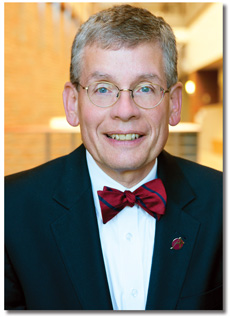
Although new to my position as President of Metropolitan State University, and new to the Central Corridor Anchor Partnership, throughout many years at Metropolitan State, I have witnessed how critically important it is for us to empower students by fostering a culturally inclusive environment.
At Metro State, we know the value of partnership--to learn in, from, and with the urban communities where our campuses are located and where our students are rooted.
This unwavering commitment to community engagement produces valuable opportunities for student learning, faculty scholarship, and community partnerships which draw from the area's rich diversity of cultures and perspectives.
This Anchor Update highlights one of the younger students who have attended Metro State, Sharif Attia. His story of ambition, hard work, and mature understanding of the role of cultural competency in health care reminds us that it is indeed the capacity to promote equity and inclusion and embrace our diversity that will guide Metro State and our Twin Cities region to a future of success and prosperity.



